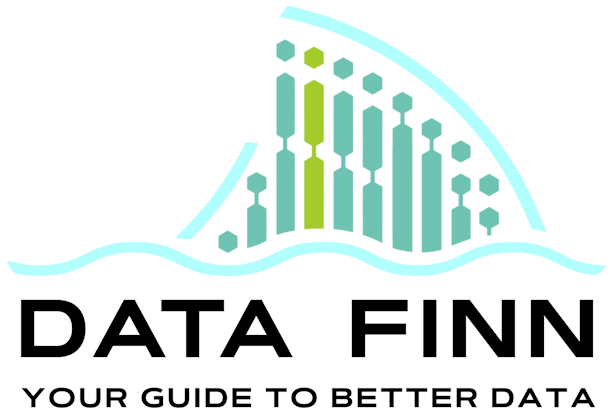
Too Many QHINs Could Hinder Progress Toward Nationwide Health IT
Last fall, The Sequoia Project began accepting applications for potential qualified health information networks (QHINs), the entities tasked with operationalizing the Trusted Exchange Framework and Common Agreement (TEFCA) established by the 21st Century Cures Act. TEFCA aims to create one unified technical framework to exchange data across the country between healthcare providers, health plans, public health agencies, and individuals.
For many of us in health IT communications, TEFCA has been greeted with both excitement and skepticism. Many smart, dedicated people have relentlessly pursued nationwide healthcare interoperability, and the arrival of TEFCA represents both a major milestone and a significant opportunity for the industry to pause and carefully consider our next steps based on past attempts and current endeavors.
To date, nearly ten entities have announced their intentions to apply to become a QHIN, including prominent software vendors, existing national networks, and regional health information exchanges (HIEs).
While not all candidates who apply will be designated, too many QHINs could hinder TEFCA’s ultimate success. In my view, the Office of the National Coordinator for Health IT (ONC), which is ultimately accountable for TEFCA, will need to take an extremely prescriptive approach with the selected QHINs.
Reducing the Inevitable Impacts of Interpretation and Assumptions
The current version of TEFCA is 62 pages long, much of it devoted to detailed technical specifications. With any document this complex, there is significant room for interpretation and assumptions.
Imagine a meeting of self-proclaimed experts, all with varying levels of experience, trying to arrive at consensus. The more people with contrasting assumptions at the table, the more potential for confusion, crosstalk, and unproductive conflict.
Certainly, it’s possible to gain alignment across multiple QHINs on key technical specifications, but it will require concerted effort to fully define each data element – particularly in the context of healthcare provider workflows. For example, the specifications might codify the name of a data element, but the data a provider captures within that element can vary. Consider a continuity of care document (CCD) with fields for social history and family history. Suppose a patient reports alcoholism within the family. In that case, the data could be recorded under either field – with equal validity – creating issues for another provider who receives and relies on that patient record.
This is just one example of a common technical problem plaguing health information exchange today – one that would doubtless be exacerbated by a glut of certified QHINs.
Put simply, it’s a quintessential too-many-chefs-in-the-kitchen problem. The cumulative impact of too many interpretations of TEFCA standards will undermine progress toward our nation’s goals for better care through interoperable exchange. And time, money, and talent will all be wasted.
With fewer well-qualified QHINs, the path toward clear, cooperative action will be greatly streamlined.
Improving and Accelerating Future Policy Guidance
In addition to serving as the conduit for data exchange, the future certified QHINs – whatever their number – will play a critical role in guiding ONC as the agency refines TEFCA. Here again, it will be exponentially harder for ONC to derive meaningful insight from numerous, varying inputs.
A few prospective QHINs lack experience in large-scale or vendor-agnostic exchange. Without consistent baseline knowledge across the future community of certified QHINs, the conversation – at least in its early months and years – would shift to bringing everyone to the same level of understanding. If entities must invest time revisiting issues that larger, experienced HIEs have resolved, the QHIN community will take far longer to address critical challenges, such as network response times, patient identification, and record completeness. These delays will come at the expense of ONC, healthcare providers, and patients.
A smaller, well-qualified group of QHINs can drive consensus and agreement far more effectively, streamlining reconciliation of conflicting perspectives while ensuring all viewpoints are heard.
Three Important Considerations for ONC and the Health IT Community
Given the complexity associated with achieving nationwide interoperability, rich discussion and collaboration is critical to progress. As an industry, we have long valued inclusivity and must continue to do so.
Limiting the number of certified QHINs would not exclude anyone from participation in these important conversations. Rather, it would support continuity and streamline operations.
As our industry embarks on the next phase of operations under TEFCA, here are a few things to keep in mind:
- HIEs don’t have to become a QHIN to be considered a legitimate network. By continuing to function as they do today, HIEs can help drive continuous innovation as a participant or sub-participant of a well-qualified QHIN.
- QHIN or not, everyone has a role. As the backbone for federal exchange, QHINs will connect thousands of providers and other networks. These participants will play a critical role in adopting the framework to achieve nationwide health data sharing.
- There will be a shakeout period. Setting up and testing prospective QHINs will take a year or more. The first cohort of QHINs, whoever they are, will face a long journey of continuous improvement, and our industry will need to seize every opportunity to help them succeed.
Getting It Right from the Beginning
ONC has a long history of promoting inclusivity in its activities. This approach is admirable, but TEFCA will be better served by a “less is more” approach to QHIN selection.
The original vision for TEFCA was for a handful of large networks to represent their members’ diverse perspectives and needs. If we deviate from that vision, we risk slowing and possibly stopping the progress toward true, nationwide health data interoperability – yet again.
If we stick with the original concept, TEFCA has a real chance of success.






